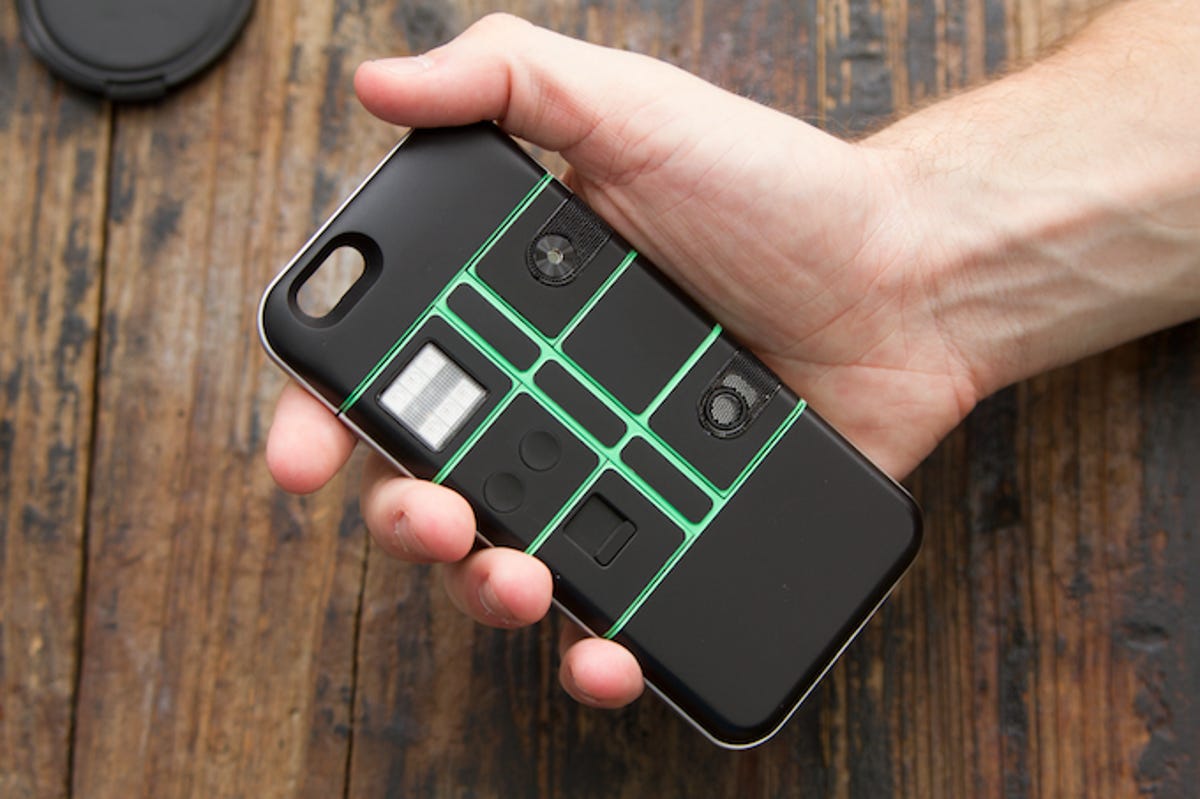
Nexpaq
Mad for modular? Google’s Project Ara phones are still to launch in trials this year, but in the meantime, one company has found a way to use the concept for the iPhone 6 , Samsung Galaxy S5 and Galaxy S6 Edge .
Nexpaq, a Kickstarted campaign, lets you power up your phone with battery packs and microSD card readers. You can also up the capacity with 32GB and 64GB flash storage. An air-quality sensor, breath analyzer, or laser pointer are examples of other tools you can add.
Related Links
- Project Ara: Everything we know about Google’s modular phone
- Google’s Project Ara phones will be strange, but fun
- Yezz’s modular Project Ara pops up at MWC (pictures)
- Google to test build-it-yourself Ara smartphones in Puerto Rico
The point is that, just like Project Ara, you can pick and choose the modules, accessing their respective functions through the Nexpaq mobile app.
This Nexpaq case lets you mix and match any six modules at a time, opening up the door to constantly changing functionality. Since they’re hot-swappable (just like Ara), the components can be inserted and removed without powering down the smartphone.
All cases include a 1,000mAh battery on-board, which should add roughly 30 to 50 percent more life to your smartphone.
In a bit of cross-platform love, the individual modules can work in either iOS or Android handsets. Should you ever switch from one mobile OS to the other, you’ll have to buy a new case, but you can still hold on to the same pieces.
Nexpaq modules include:
- Battery
- Amplified speaker
- Super LED flashlight
- SD card reader
- Temperature and humidity
- Hotkeys
- USB flash storage
- Air quality
- Breathalyzer
- Laser pointer
- 64GB hard drive
Just getting started


Nexpaq
The project is already funded, but new Nexpaq backers can score a case and four basic modules for $109. For your money you’ll receive the battery, speaker, hardware buttons, and an SD card reader.
Nexpaq’s iPhone 6 cases are expected to start shipping this November, followed by those for the Samsung Galaxy S5 and Galaxy S6 Edge in January 2016.
Developers, on the other hand, can shell out $3,000 for a case with all 12 modules and begin working as soon as June. Nexpaq’s Developer Kit aims to kickstart a hardware ecosystem for modules and, one day, an app hardware storefront.
It’s a fun idea for sure. As to the overall quality or accuracy of the Nexpaq tech, well, we’ll see.



